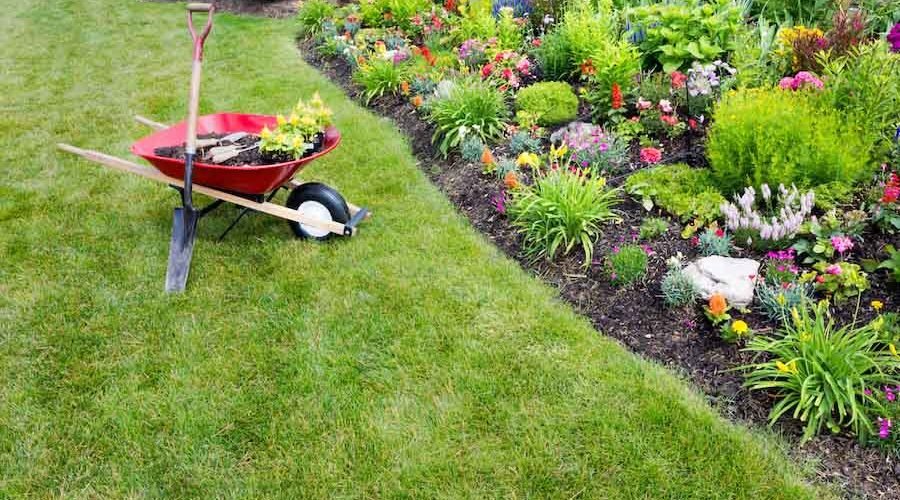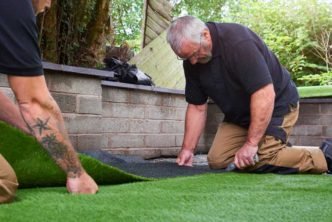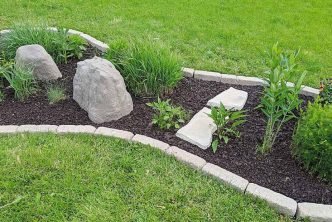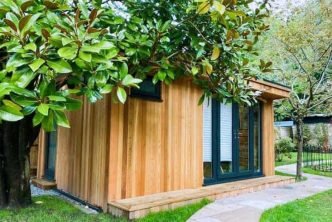Did you know that a properly maintained green lawn is less flawless than you may think? Well-maintained lawns affect climate change in several ways. Research shows that maintaining these lawns requires large amounts of fossil fuel-powered equipment, water, and dangerous pesticides to keep the weeds away. As a result, many homeowners are today redefining what an ideal lawn should look like and adopting newer modifications to protect their environment. According to experienced landscape gardeners Nottingham, the following steps can help minimize the environmental impact of your landscaping and gardening;
Table of Contents
Create Natural Pathways
When working with a competent landscape designer to create your dream garden, consider what garden path you want. Several elements can influence whether or not your approach is environmentally friendly;
1. Permeability:
Water, including rainwater, can soak into the soil under permeable pavers and provide moisture to your plants. In contrast, impervious pavements lead to puddling, runoff, and flooding.
2. Sources Materials Locally:
If you add pavers to your walkway, look for locally sourced alternatives. Choosing local resources eliminates the need to import stones from other parts of the world, reducing the carbon emissions that result from transportation.
3. Use Recycled And Natural Materials
Natural materials, such as bark, crushed wood, and brushed masonry, can create a permeable walkway and reduce landscaping costs. You can also create a beautiful landscape consistent with your efforts to develop an environmentally responsible outdoor space by choosing your route based on these features.
Allow Some Weeds To Grow
Allowing weeds is one of the first steps toward a perfectly manicured garden or lawn. Some weeds help identify soil problems, help control wildlife, and are even edible.
1. Chamois weed:
Chamois weed has a remarkable healing effect on undersupplied soils. The weed restores the ground and helps you with future gardening needs.
2. Dandelion:
Dandelion roots develop over a large area, breaking up compacted soil and providing nutrients near the soil surface. You can also consume them by preparing dandelion tea.
3. Mugwort:
Mugwort is a difficult weed to eradicate. They are aggressive, and most people dislike dealing with them. On the contrary, they can help absorb toxic metals in the soil while preventing erosion. Appreciating these weeds can create a healthy nature where plants and beautiful flowers thrive.
Employ Environmentally Friendly Methods To Handle Weed
Not all weeds are beneficial to homeowners. Unfortunately, many weed killers contain toxic chemicals that can attack wildlife and plants. There are several environmentally friendly methods you can use to get rid of weeds in your yard;
1. Hand Weeding:
Removing weeds by hand can be time-consuming, but it has several benefits! You spend time outdoors enjoying the sunlight and fresh air while you weed. Plus, you can get your whole family involved in the work. Assuming you can not do the work yourself, hiring an environmentally conscious lawn care professional is best.
2. Use Vinegar:
Vinegar is an excellent substitute for many household cleaners but can also be helpful for gardening. You can dry up unwanted weeds by drizzling them with vinegar. You can also combine the vinegar with salt or lemon juice for more effective weed control.
3. Mulch:
Mulch covers the soil and keeps sunlight away from weeds. You can keep weeds at bay by applying mulch to soil areas without vegetation. While these methods require more work and sometimes take longer than chemical remedies, they reduce the harmful impact your landscaping can have on the surrounding ecosystem.
Focus On Growing Native Plants
Growing only native species is an excellent approach to making your property environmentally friendly. Unlike exotic species, native plants thrive in the climatic conditions of your region. For example, if you live in a hilly area, you should not grow palm trees in your home. You will need extensive resources to maintain your palms. Growing native plants also benefits local farmers and wildlife.
Reconsider The Your Lawn Size
When choosing a new home, look for a modest yard because it requires little water, less gasoline to mow the lawn and less costly maintenance. Smaller lawns also make traveling easier and save you time that you’d have otherwise spent maintaining the lawn.
Hire Lawn Care Experts
Working with professional landscapers is a good investment if you want to transform your yard and lawn in an environmentally friendly way. Lawn care experts create attractive outdoor spaces for their clients by combining their skills with digital development. In addition, ecologically conscious lawn care companies understand the value of sustainability.
Understand that one of the main reasons to hire lawn care professionals to make your yard environmentally friendly is so that you can benefit from their knowledge and experience. Make sure the company you choose has the necessary expertise for your task.





